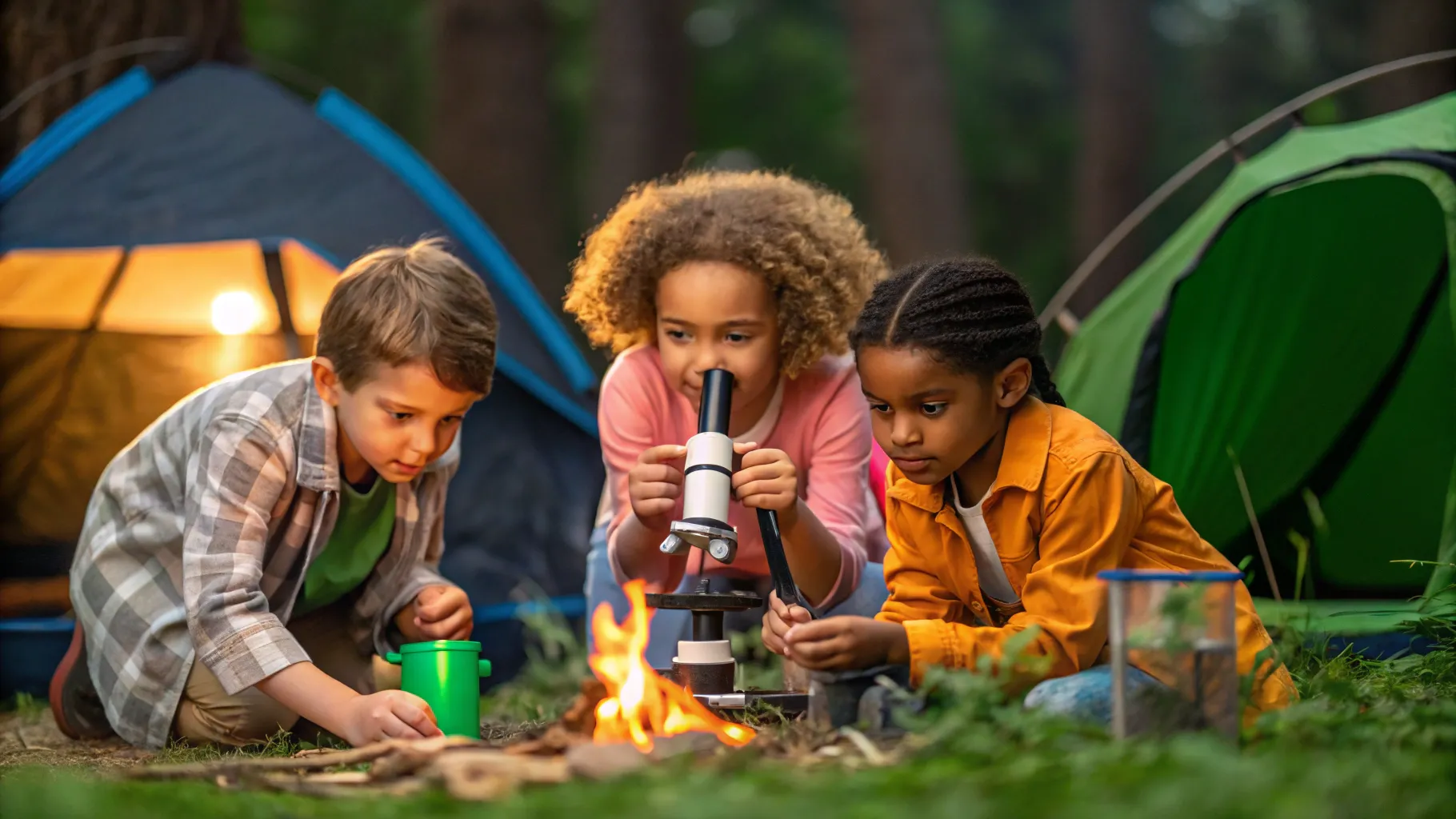Family Camping Made Easy: Tips for Memorable Adventures with Kids


Camping with children creates lasting memories but requires special planning. Learn how to choose kid-friendly gear, plan activities, and ensure everyone has a great time on your family outdoor adventures.
Why Family Camping is Worth the Effort
Family camping offers unique benefits that make the extra planning worthwhile. Beyond creating cherished memories, camping together:
- Teaches children practical outdoor skills and self-reliance
- Provides quality family time away from screens and distractions
- Fosters appreciation for nature and environmental stewardship
- Builds confidence as children master new challenges
- Creates family traditions and stories that last a lifetime
Choosing the Right Campsite for Families
Selecting a family-friendly campsite can make or break your camping experience. Consider these factors when choosing your destination:
Essential Family Camping Gear
The right gear makes family camping more enjoyable and less stressful. While you don't need everything at once, these items will significantly improve your experience.
Shelter and Sleeping Gear
- Family-sized tent: Choose one size larger than your family (6-person for family of 4)
- Sleeping arrangements: Individual sleeping pads, kid-sized sleeping bags
- Comfort items: Favorite pillows, stuffed animals, night lights
- Extra tarps: For creating shaded play areas or rain protection
Kitchen and Food Essentials
- Camp stove: Two-burner minimum for family cooking
- Cooler organization: Separate coolers for drinks and food
- Kid-friendly utensils: Unbreakable plates, cups, and utensils
- Simple recipes: Pre-prep ingredients at home to simplify cooking
Age-Appropriate Camping Tips
Camping with different age groups requires tailored approaches. Here's how to make each stage enjoyable:
Toddlers (2-4 years)
- Maintain nap and bedtime routines as much as possible
- Bring familiar comfort items from home
- Choose campsites close to amenities
- Pack extra clothing for messes and changes in weather
- Create a safe play area near your tent
Young Children (5-8 years)
- Involve them in simple camp tasks (gathering firewood, setting table)
- Plan nature scavenger hunts and simple hikes
- Teach basic camping skills like tent setup and fire safety
- Bring craft supplies for rainy day activities
Tweens and Teens (9+ years)
- Give them responsibilities like meal planning or navigation
- Incorporate technology (star-gazing apps, nature identification)
- Plan more challenging activities like longer hikes or kayaking
- Respect their need for privacy and personal space
Meal Planning for Family Camping
Good food is crucial for happy campers. Simplify your camping meals with these strategies:
Activities to Keep Everyone Entertained
Planning activities ensures that children stay engaged and creates positive associations with camping.
Daytime Activities
- Nature scavenger hunts: Create lists of items to find
- Explorer kits: Magnifying glasses, binoculars, nature guides
- Water play: Stream exploration, swimming, fishing
- Junior ranger programs: Many parks offer educational programs
Evening Activities
- Campfire stories: Age-appropriate ghost stories or family tales
- Stargazing: Learn constellations together
- Glow stick games: Dance parties or nighttime hide-and-seek
- Shadow puppets: Simple entertainment with a flashlight
Rainy Day Solutions
- Tent games: Cards, travel games, storytelling
- Nature journals: Drawing and writing about the experience
- Audio books: Listen together during downtime
- Craft supplies: Friendship bracelets, rock painting
Safety Considerations for Family Camping
Keeping everyone safe allows you to relax and enjoy the experience. Focus on these key areas:
Camp Setup Safety
- Establish clear boundaries around camp
- Set up tent away from fire pit and cooking area
- Check for hazards like poison ivy, ant hills, or uneven terrain
- Create a well-lit path to bathroom facilities
Fire Safety
- Establish a "no running" zone around fire area
- Teach children fire safety rules before the trip
- Always have water nearby when fire is burning
- Assign adults to specifically watch children near fire
Wildlife Safety
- Store food properly in bear-proof containers or car
- Teach children not to approach wildlife
- Keep campsite clean to avoid attracting animals
- Know what to do if you encounter local wildlife
"The goal of family camping isn't perfection—it's connection. Some of our most cherished family stories began with what seemed like disasters at the time. Embrace the imperfections and focus on being together in nature." - Emma Rodriguez
Making Memories and Building Traditions
Family camping trips often become cherished traditions. Here's how to make your trips memorable:
- Start small: Begin with backyard camping or one-night trips
- Create rituals: Special campfire songs, traditional meals
- Document adventures: Take photos, keep a camping journal
- Involve everyone: Let each family member plan part of the trip
- Be flexible: Adjust plans based on weather and moods
Troubleshooting Common Challenges
Even well-planned trips can face challenges. Here's how to handle common issues:
Final Thoughts
Family camping creates bonds and memories that last far beyond the trip itself. While it requires more planning than solo or couple camping, the rewards are immeasurable. Start with low-pressure trips close to home, gradually building skills and confidence as a family.
Remember that every family's camping style is different. What works for one might not work for another. The most important thing is to get outside together, disconnect from daily routines, and enjoy each other's company in nature. At SystemScope, we're here to help your family find the right gear and resources for your outdoor adventures.
